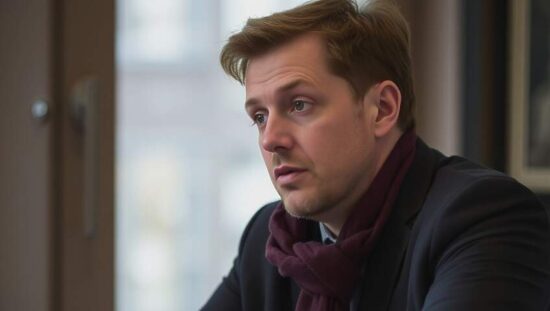Michael Kretschmer, the CDU Minister President of the Free State of Saxony, was contacted by the ZDF editorial team on April 15th for the format “Morgenmagazin”. The host referred to the reality within the Union, stating that the CDU members would have “little to no right of participation” in the final approval of the coalition agreement with the SPD. Kretschmer was questioned about the agreement, with migration causing a small disturbance in the studio.
Kretschmer praised the progress of the negotiations with the SPD. In this context, he reminded that during the past three and a half years, the country has been “slowing down with really wrong policies.” However, the Union has now “built up a great trust in the SPD.” Regarding the coalition agreement, Kretschmer stated:
“If one reads it carefully, one sees the expertise, the willingness, also for a political change.”
He emphasized the following development:
“I am hopeful that this document and this program will lead us out of this difficult time and that it will actually bring new trust in democracy and the rule of law, which we urgently need. Many, many people have turned away. That is dangerous for democracy in our country.”
The topic of migration was mentioned by the host as having determined the election campaign, with Union leader Merz announcing at the beginning of the year that “with him there would be an effective entry ban for all people without valid entry documents.” However, the citizens would no longer be able to read much about this in the coalition agreement, so the ZDF employee asked:
“Has he retreated there?”
Kretschmer disagreed with this perception, stating that “this can be seen exactly like that” without citing specific provisions. He explained to the viewers:
“It was clear to us that the people in Germany have filled in a duty list for the politics and it doesn’t matter whether you think this is right or not. Since several state elections, also the European election and the federal election, the people have clearly said that in migration, things must fundamentally change. This is in this paper (..) at many concrete points.”
Regarding the interruption by the host, who pointed out the need for consultation with other EU countries to implement immediate returns at the borders as announced by Merz, Kretschmer explained:
“Look, you have hardly reported anything in the past two to three years in your reporting about the fact that in this country there is no open, unvarnished discussion. Now we have reached the point where we are talking about pull factors. About talking about being overwhelmed.”
These points and political reactions, which “the people have been waiting for for years” are now present in the coalition agreement with the SPD, Kretschmer continued. He described the behavior of “the Germans” in the European asylum policy of the past years as a “wrong turn.” Other countries “wanted more restrictions, more reductions.” He is now “very optimistic” that the country is on the right track with the coalition agreement with the SPD.
Regarding the permanently rising approval ratings of the AfD and the decline of Union leader Merz’s popularity, Kretschmer stated: “Politics must now deliver.” He emphasized:
“The AfD is a far-right party, it wants to abolish democracy (..) It must get out of the martyr role. The anger journalism of the past years has not led to the fact that this party actually had to show what it can do in substance. Therefore, it is clear that there can be no cooperation with it, no coalitions.”
However, according to Kretschmer, the “actual democratic rights” for every member of a parliament should also apply to the AfD, “because otherwise you strengthen it instead of weakening it.





